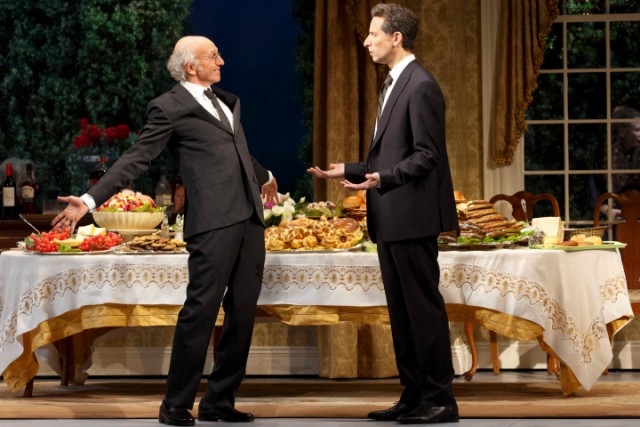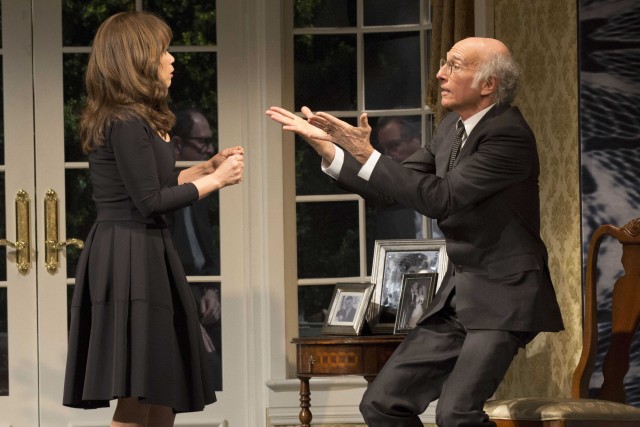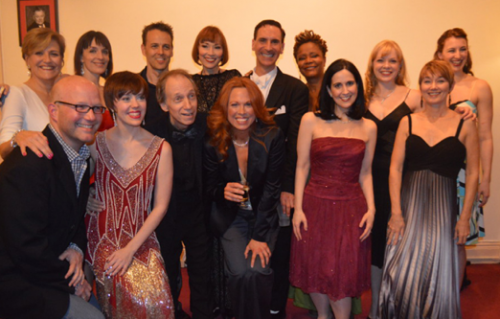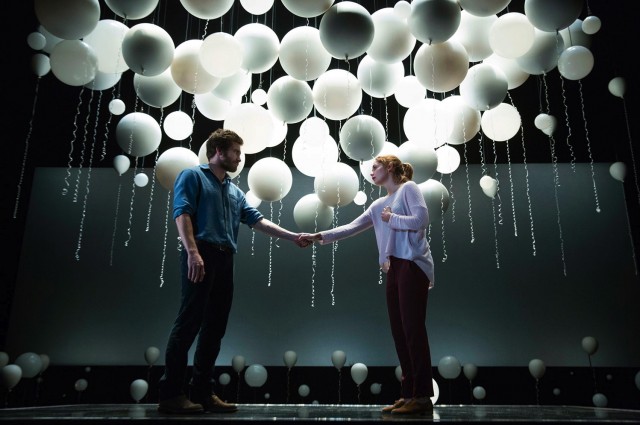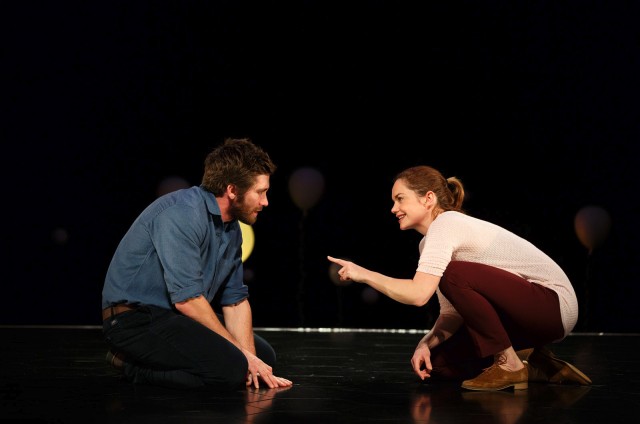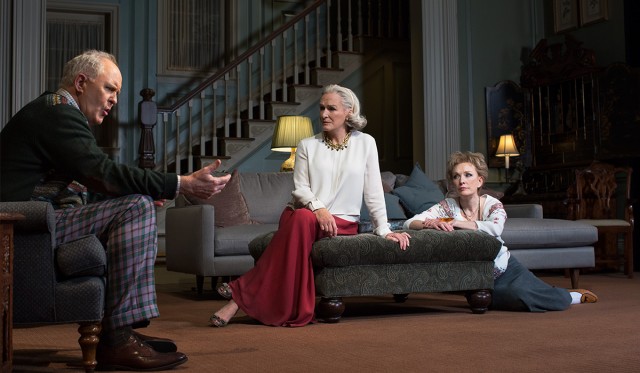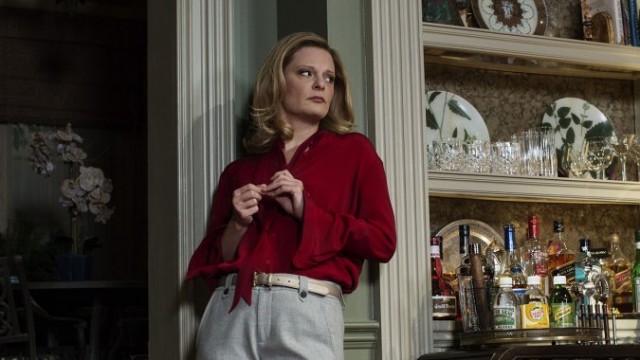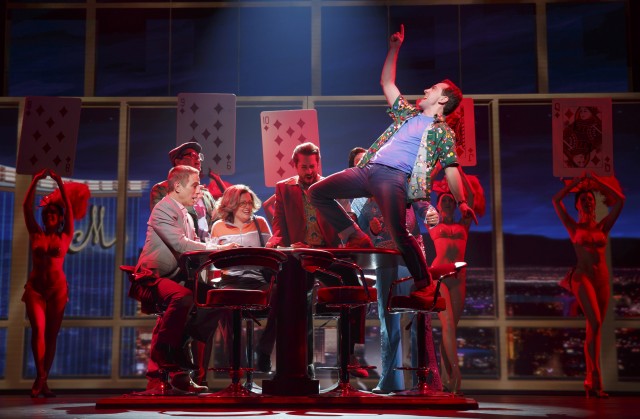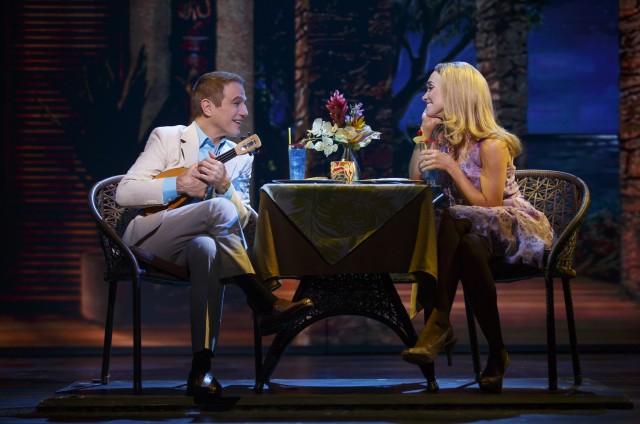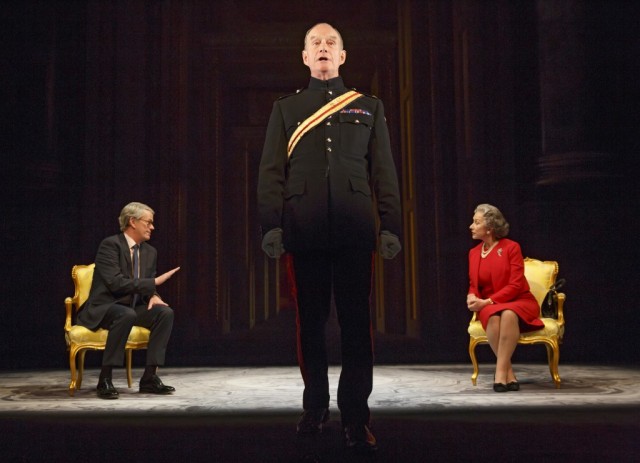
The queen’s equerry (Geoffrey Beevers) serves as a kind of Greek chorus unto himself in THE AUDIENCE (photo by Johan Persson)
Gerald Schoenfeld Theatre
236 West 45th St. between Broadway & Eighth Aves.
Tuesday – Sunday through June 28, $79-$157
theaudiencebroadway.com
In 2007, Helen Mirren won an Oscar for playing Queen Elizabeth II in Stephen Frears’s The Queen, which deals with England’s reaction to the death of Princess Diana. In 2013, Mirren won London’s prestigious Olivier Award for playing the queen onstage in The Audience, and she is certainly in line for a Tony nomination now that the production has moved to Broadway, running at the Gerald Schoenfeld Theatre through June 28. Both the film and the play were written by Peter Morgan, who specializes in fact-based dramas that imagine what goes on behind closed doors, including Damned United, The Last King of Scotland, and Frost/Nixon (which was a hit both onstage and onscreen). His works have been criticized for stretching credulity as he makes up dialogue and characters and creates scenes that are known to never have occurred, like the meeting of David Frost and President Richard Nixon that takes place at the end of Frost/Nixon. In The Queen, Morgan focused on Elizabeth and Prime Minister Tony Blair; in The Audience, he explores the queen’s relationship with eight of England’s elected political leaders (of the twelve PMs who have served during her reign, which began in 1952) through her weekly “audience” with them, a real tradition in which they come to Buckingham Palace and very briefly talk about what is happening in the country. The royal is supposed to just listen and nod in agreement, but Elizabeth often eschews what is expected and shares her own views, which shocks some and annoys others, although in the end she is always demure and graceful. One prime minister turns her into a therapist, while another develops an unusual friendship that finds him vacationing with her at Balmoral Castle. “You have a way of saying nothing and yet making yourself perfectly clear,” one of the prime ministers says to her. Of course, since the weekly audience is completely private, no one knows what was actually said, so giant leaps of faith are needed as the queen flirts with an aging Sir Winston Churchill (Dakin Matthews), discusses the Suez Canal with Sir Anthony Eden (Michael Elwyn), becomes a confidant to John Major (Dylan Baker), goes head-to-head with Margaret Thatcher (Judith Ivey), and develops a genuine rapport with Harold Wilson (Richard McCabe).
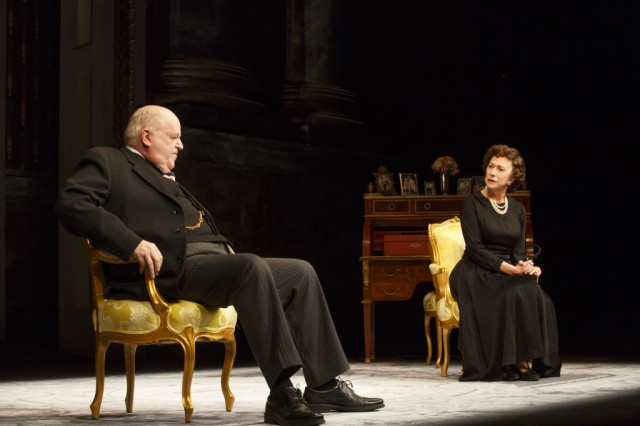
Sir Winston Churchill (Dakin Matthews) is uncomfortable meeting with Queen Elizabeth (Helen Mirren) in THE AUDIENCE (photo by Johan Persson)
Mirren is a marvel as the queen, magically changing clothes and hair onstage as the narrative jumps around through the years, splendidly capturing each era. (Hint: She is wearing multiple costumes at any one time, beautifully designed by Bob Crowley.) The story is too random, never establishing any legitimate conflict, and it seesaws between being too explanatory and not providing enough background information on British history, making references that will leave American audiences confused and, at times, just plain bored. It also gives a huge benefit of the doubt to the queen, as it’s a kind of love letter to British royalty that avoids controversy. McCabe excels as Wilson, a working-class slob who suddenly finds himself as the leader of a major world power, while Ivey is overly bombastic as Thatcher, inflating her into a caricature. The Audience features touching scenes of the young Elizabeth (alternately played by Sadie Sink and Elizabeth Teeter) appearing onstage as a memory, being taken care of by her dedicated nanny, Bobo McDonald (Tracy Sallows); the show would have benefited from more of those moments. Crowley’s set design is appropriately ornate and opulent; Geoffrey Beevers is playfully charming as the queen’s equerry, her dedicated right-hand man who explains in stately diction the provenance of the art and furniture, addressing theatergoers directly. Two-time Tony winner Stephen Daldry (Billy Elliot, An Inspector Calls) handles it all in a stylish, refined manner, doing what he can with a tale that is primarily built around two people sitting in chairs, talking about rather mundane things. The Audience is sure to find an audience, given its big-time star delivering a wonderful performance, but those who expect depth, surprise, or tension may leave their chairs not quite wholly in awe of the royal proceedings they have witnessed.
